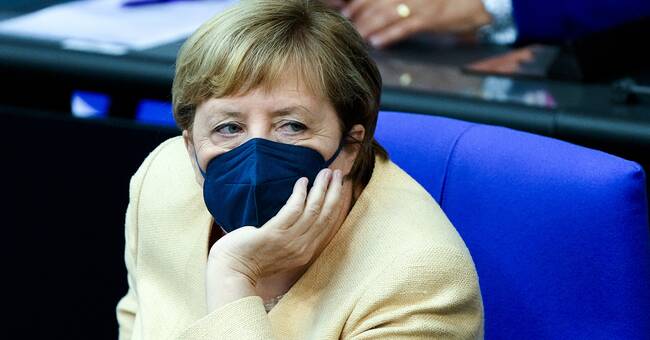As a journalist, I thought that Angela Merkel during her first years was rigid and insecure, there were never any spontaneous words to us TV journalists when she went down from the stage at an election rally.
To mark - carefully move on
At press conferences and at EU summits in Brussels, however, it went well as a Swedish journalist to ask questions and there Angela Merkel often gave examples of detailed knowledge and commitment, but at the same time it was difficult to cut out any short answers to tonight's news broadcast.
In German, "zu merkeln" or "to merkla" became a concept, it was often long, rather complicated reasoning with subjunctive, reservations and nuances and rarely really straightforward messages.
But both in German politics and at EU summits, it was a successful path.
German voters appreciated the reasoning chancellor who sought broad solutions above the "political quarrel".
Alpha males at the EU conference table
At EU meetings with talkative alpha males like the Italian Silvio Berlusconi or France's Nicolas Sarkozy around the table, it was also an advantage to wait and see where she would put a well-balanced compromise proposal.
Eastern European countries felt that Merkel was also listening to them.
Quick decisions surprised
At the same time, it became clear over time that Angela Merkel sometimes made quick and principled decisions that came as a surprise.
She changed the CDU's housewife policy and invested in more preschools and parental leave with father's month.
Following the Fukushima nuclear accident, Angela Merkel pushed for a faster decommissioning of German nuclear power plants.
It surprised the pro-nuclear CDU, but also neighboring countries sighed that Germany went its own way without consultation.
During the refugee crisis in 2015, Merkel opened the German borders for asylum seekers without contacts with neighboring countries.
But in most areas, it has been a matter of slowly seeking compromise, where the overriding thing for Angela Merkel has been to keep the whole of the EU together and, above all, to keep the euro countries together.
Compromises with built-in problems
The financial and euro crisis of 2008-2010 was partly about different views on how much indebtedness countries and the EU can have, and that question is still bubbling.
Following the pandemic, Germany has released large EU loans for a huge recovery fund.
Whether the EU should be allowed to continue borrowing and whether the EU should receive money from EU taxes on plastics, aviation and carbon dioxide emissions is a question Merkel is leaving behind.
Most clearly, Merkel's willingness to compromise has been shown against the current governments in Hungary and Poland.
Arguing that the National Conservatives should not be pushed into the arms of Russia and Putin, Merkel has been cautious when the Commission and the European Court of Justice have found violations of judicial political independence and human rights violations for LGBTQ citizens.
How Poland and Hungary will be handled is also a question Merkel leaves behind.
Merkla continues
There is much to suggest that a new Chancellor in Berlin will also continue Merkel's approach with cautious steps and compromises.
In the EU, it is a matter of "moving on" with the climate issue, refugee crises, defense capabilities and how crimes against the rule of law are handled.

